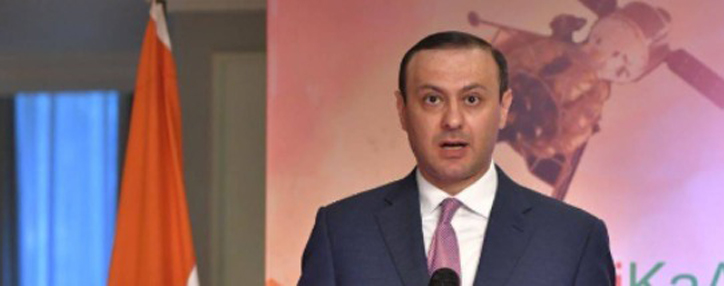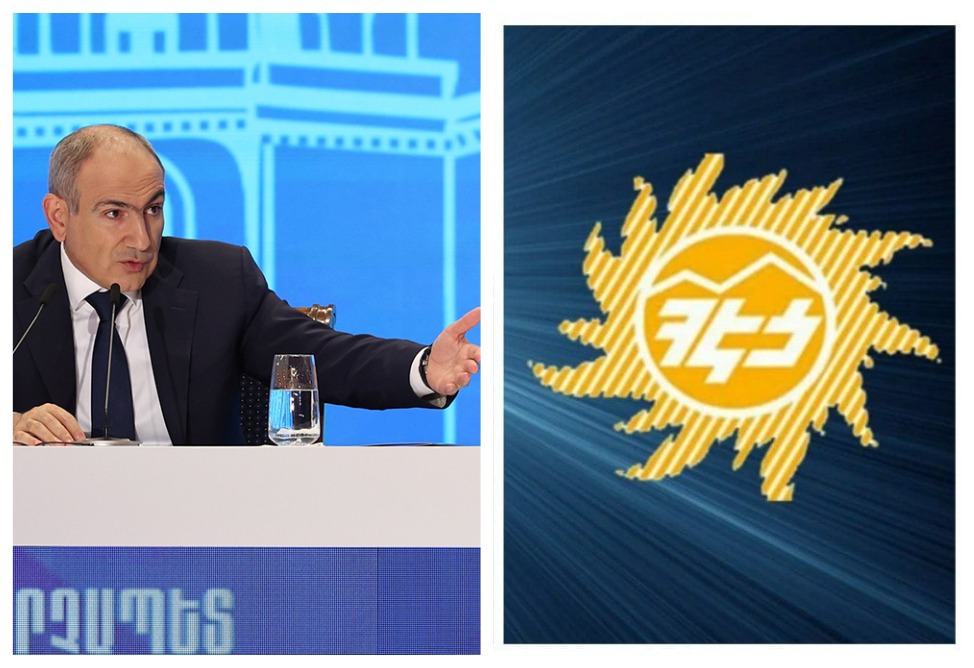Security Council Secretary: there is no Armenian-Turkish agenda

YEREVAN, December 23. /ARKA/. The Secretary of Armenia's Security Council Armen Grigoryan denied allegations that the government in Yerevan was catering to the Turkey’s agenda.
In an interview with Armenia's Public Television he said Armenia responded to positive signals from Turkey regarding the normalization of relations.
Turkish Foreign Minister Mevlut Cavusoglu said December 13 that Turkey and Armenia will soon appoint special envoys to take steps toward the normalization of bilateral relations. "We will also open chartered flights with the Armenian capital city Yerevan,” he said.
Vahan Hunanyan, spokesman for Armenia’s Foreign Ministry, confirmed Cavusoglu's announcement.
"In this regard, we positively assess the statement of the Turkish Foreign Minister on the appointment of a special representative for the normalization of relations, and confirm that the Armenian side will appoint a special representative for this dialogue," Hunanyan said in a December 14 statement.
Armen Grigoryan told the Public Television that Armenian authorities have said many times that Yerevan and Ankara should sit down at the negotiating table to understand what agenda can they have. ‘There is no agenda yet," Grigoryan said.
“There are opportunities now in the region in a broad context. For example, the opening of the Kars-Gyumri railway branch would create great opportunities for Armenia and Turkey and would create also economic interdependence, which is an important factor of stability and security,’ he said.
"The Turkish side doesn't say what should happen, except for making public statements. And we are responding to almost all of these statements and present the position of the Republic of Armenia proceeding from our interests. We think it's important to sit down at the negotiating table and discuss all the issues that are spoken about publicly," Grigoryan said.
He noted that Armenia does not know anything about the "road map" Turkey is talking about. Grigoryan also denied allegations that Armenia would provide Turkey and Azerbaijan with transport corridors through its province of Syunik that would be out of its sovereignty.
"Armenia has never discussed, is not discussing and will not discuss the corridor issue," Grigoryan said.
"If Turkey, by saying 'corridors', means using Armenia's roads as Armenia’s s sovereign territory, then our approaches coincide. If there is a discussion, we will understand the issue specifically," he said, adding that the place and time of the discussion have not yet been determined.
Grigoryan expressed readiness to visit Ankara and Baku, if necessary, and to host representatives of Turkey and Azerbaijan in Armenia to discuss regional problems.
Although Turkey was one of the first countries to recognize Armenia’s independence from the former Soviet Union, the countries have no diplomatic ties and Turkey shut down their common border in 1993, in a show of solidarity with Azerbaijan which was locked in a conflict with Armenia over the Nagorno-Karabakh region.
Turkey also refuses to recognize the Armenian genocide, committed during 1915-1923 when an estimated 1.5 million Armenians were massacred by the Ottoman government. The overwhelming majority of historians widely view the event as genocide.
In 2009, Ankara and Yerevan reached an agreement in Zurich to establish diplomatic relations and to open their joint border, but Turkey later said it could not ratify the deal until Armenia withdrew from Nagorno-Karabakh.
Last year, Turkey strongly backed Azerbaijan in the six-week conflict with Armenia over Nagorno-Karabakh which ended with a Russia-brokered peace deal that saw Azerbaijan gain control of a significant part of Nagorno-Karabakh. -0



